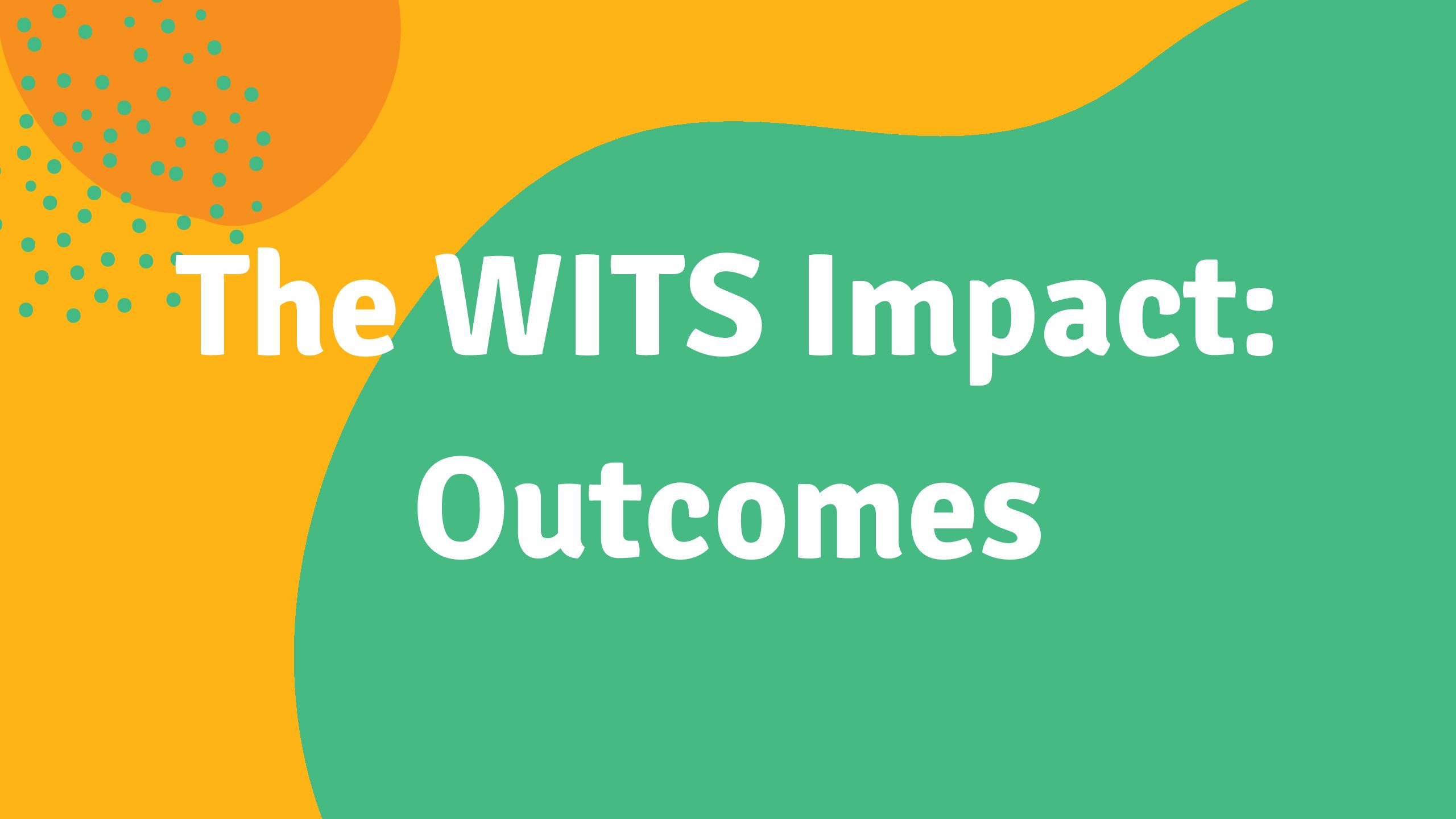WITS welcomes all students to participate in programs, regardless of their reading level. Whether the student is reading above grade-level and needing an extra challenge, or an emerging reader who needs practice with fundamentals, WITS helps them grow. Because success looks different for every student we serve, the WITS impact focuses on two outcomes: individual reading level growth from the beginning of the year to the end of the year, and attitudes toward reading.
At the beginning and end of each school year, teachers assess students in oral fluency, comprehension, and vocabulary – skills reinforced at our programs. Each student is assigned a reading level, with the goal of advancing levels over the course of the year. WITS receives beginning and end-of-year reading level data and uses reading level improvement as an indicator of eventual reading proficiency.
WITS is proud that in the 2018-2019 school year, 60% of students outperformed the national average in reading level growth. Across all WITS programs, WITS students improved by four reading levels, surpassing the national average of three levels.

Reading level growth is a clear indicator that WITS programs positively impact students. For WITS, a student’s attitude toward reading is equally as important, as it significantly shapes their reading and learning habits. As with any other skill, the more a student enjoys reading, the more they will practice, and the more they will improve. WITS understands the correlation between attitudes toward reading and reading level growth, which is why we allow students to choose what they read each session. In addition to encouraging student agency, WITS staff regularly accept book requests, ensuring that every book bin at program is filled with titles that directly reflect student interests.
In FY19, an average of 64% of WITS students demonstrated an improved attitude toward reading, indicating the positive impact of one-on-one mentorship.
Responding To School Needs: The Mid-Day Mentoring Journal
To ensure our programs support classroom learning, WITS relies on the expertise of our school partners and applies their feedback to program design. At the end of the 2017-2018 school year, school administrator surveys indicated a desire for Mid-Day Mentoring (MDM) to align with Common Core literacy skills (i.e., identifying themes, summarizing, making connections, etc.). That summer, WITS staff collaborated with a third-grade teacher to create a MDM Journal used at program to contain content with direct connections to grade-level curriculum.
Program staff began introducing one core skill each month, structuring time for students and mentors to complete activities together. Leading up to these skills-focused sessions, WITS included activity details in weekly volunteer reminder emails as well as brief videos that included an activity overview, sample dialogue, and tips for engaging students.
MDM volunteer surveys showed that the journal helped mentors and students share ideas, discuss themes, and track year-long progress. Similarly, teachers and administrators expressed value in low-stress, skills-based practice that students can enjoy in an encouraging and accessible environment. Building on the success of the new MDM Journal, WITS leaned into what we do best – create fun learning experiences for students. For the 2019-2020 school year, Laurie Brooks, WITS’ newly-hired Curriculum Manager and former CPS teacher, designed interactive games for MDM students and mentors to enjoy while practicing specific literacy skills: a maze that can be solved by identifying supporting details; a Bingo board with elements of a book in each box; a Tic-Tac-Toe board that helps students name parts of a story. These games provided an easy access point for students of all skill levels to participate and learn together.
Expanding Volunteer Support For WITSK Mentors
We want everyone to be successful at WITS, and that includes mentors. Just as all students are welcome to participate, all volunteers are welcome as well – regardless of their experience (or lack thereof) in literacy instruction. As we develop new ways to align WITS programs with classroom learning, we will need to guide our mentors along the way.
During the 2019-2020 school year, WITS created WITS Kindergarten Strategy Cards (WITSK Cards) to provide mentors with additional tips and tricks to help their young students develop foundational literacy skills. Each set of cards focuses on a specific skill that kindergarteners learn and practice during the school day (i.e., parts of a book, directionality, identifying words vs. letters, punctuation, etc.). The cards include key points about the content, sample language to engage students, and additional context to help mentors understand why each skill is important to master.
Outcomes-Focused Strategic Plan
In early 2019, WITS’ new CEO Tena Kunik announced an updated strategic vision that shifts WITS’ focus from the number and size of our programs, to the impact our programs have on the school communities we serve. As the largest provider of literacy programming in Chicago Public Schools, WITS has the responsibility and power to be the best.
WITS aspires to have 100% of students exceed the national average in yearly reading level growth. To do this, WITS is exploring how all elements of program delivery shape student outcomes, including: program design, staff training, and ongoing support for students and mentors.
Starting in Summer 2020, WITS will partner with the Boston Consulting Group Center for Illinois’ Future to develop a five-year strategic plan that addresses how we can advance student literacy in the school communities we serve. We are humbled and eager to begin this work and look forward to shaping a promising future for the entire WITS community.
WITS ADDS OVER
to the homes of students and classrooms of Rochelle Lee Teacher Awardees each year.
Wits provides
of literacy mentorship each year in Chicago Public Schools.


